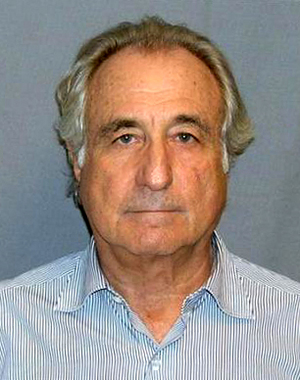Think Like a Sociopath, Act Like A Saint
Editor’s Note: This is the fifth article in a week-long series about crisis communications. These guest posts were written by Jane Jordan-Meier, who recently released her book, “The Four Stages of Highly Effective Crisis Management.” You can read all five articles in this series here and purchase her excellent book here.
Ian Mitroff, Professor Emeritus at the University of Southern California, coined the phrase, “Think like a sociopath, act like a saint.”
To be fully prepared today, organizations need to adopt the thinking of sociopaths – thinking like paranoids in order to come up with “unpalatable and unthinkable scenarios.” The more bizarre the better.
Would Domino’s Pizza have thought that two of its employees would do very vile things to food, film themselves and then post that outrageous behavior to the internet for the world to see? Perhaps not. Then again, they are in the food industry – and that act, disgusting as it was, is not beyond the realm of “normal” thinking.

Think Like Bernie Madoff.
So what defines a sociopath ? According to Answers.com, the key characteristics are:
- Having no conscience
- Inability to treat others as human beings with feelings and rights
- Inability to learn from experience and life
- Habitual dishonesty
“Sociopaths treat other people as toys and hanker after the power to control and hurt their ‘nearest and dearest’,” Answers.com bluntly states.
So there you have it – please put on this paranoid hat when you are in crisis management planning mode – make those dollars you spend (and you may need some deep pockets for good training and testing) count.
But also remember that according to an industry rule-of-thumb, you can save $9 in recovery for every dollar spent. If you invest $50,000 in a facilitated exercise and crisis planning, that investment will be peanuts compared what it could cost you IF no training, planning and testing are done. If you fail to plan, then plan for failure – your costs in repairing the damage will be at least $450,000. That is a sizeable sum of money that will put a very big strain on your budget and reputation.
And if the dollars fail to convince you, then think about the influence and power of crowd panic, the paranoia if you will, and the speed of Twitter.
A tweet with inaccurate or damaging information can be shared and sent around the world in minutes, if not seconds – by the crowds. Australia’s flagship airline, Qantas, that prides itself on its safety record, suffered at the hand of a so-called “innocuous tweet” from Indonesia claiming there had been a crash. The tweet spread like wildfire, caused mass panic and dented the Qantas share price.
The crowd is no longer the passive audience (really never has been) receiving the information through a mediated party (the mainstream media). They are now fully engaged, active in gathering the information, swapping and sharing facts, and opinions – their versions of the truth. Not to mention the ability of the crowds to topple governments and implement real change through dialogue and dissemination of pertinent information.
No longer do organizations, unless they are very, very prepared, set the agenda. That is the realm of the crowds, we, the people, the delightfully and scarily flawed human beings that we are, who spread the word and make the truth – all at the speed of light. So think like a sociopath.
As for saints, we honor them.
Click here to read all five articles in this special crisis series.
Click here to order Jane’s excellent book.




[…] I guess you could say I am finding some vindication after reading a post and related Q&A with Jane Jordan-Meier, author of “The Four Stages of Highly Effective […]